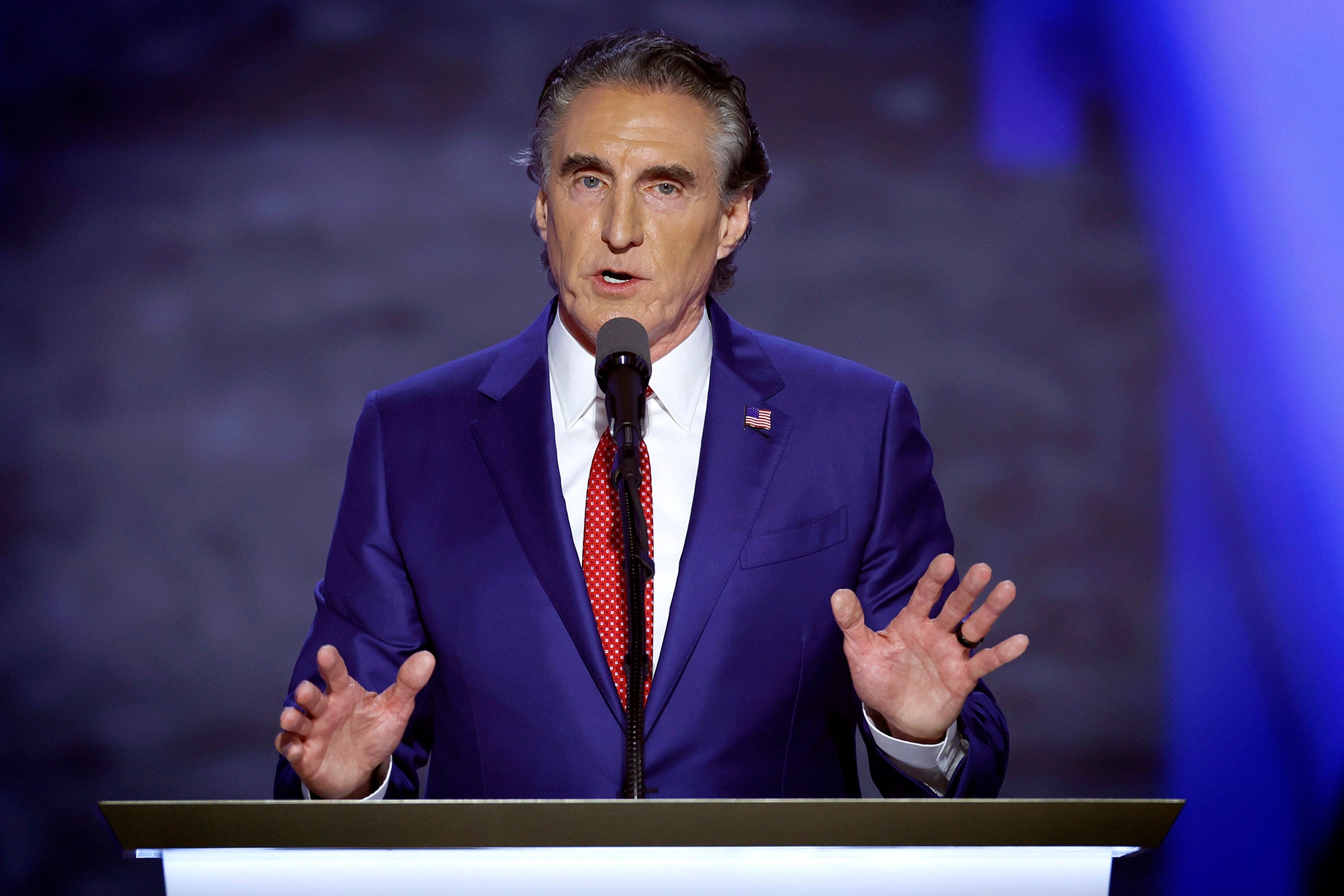Earthjustice goes to court for our planet.
We’re here because the earth needs a good lawyer.
Trump Nominates Oil and Gas Ally as Interior Secretary
President-elect Donald Trump nominated North Dakota governor Doug Burgum to be Secretary of the Interior, a position responsible for most federal lands and natural resources held in the public trust.
What it means: Burgum is a champion for the oil and gas industry. By picking Burgum, who has little experience managing lands, Trump is signaling that the agency will prioritize expanding oil and gas drilling on federal lands for the next four years — and that the value of our public lands and waters will be measured by the natural resources that can be extracted from them.
After the announcement, Earthjustice President Abigail Dillen issued the following statement:
“By picking Burgum, President-elect Trump is taking the first step toward unleashing a wave of oil and gas drilling on our public lands. The Interior Secretary is entrusted with protecting our shared lands and waters, now and for future generations, but Governor Burgum is poised to prioritize reckless development above all else. We can’t double down on drilling and habitat loss in the face of runaway climate change and extinctions. We stand ready to go to court to protect our wildlands and waters from extractive industries and safeguard the interests of Tribal communities threatened by development they oppose.”
What is Doug Burgum’s environmental record?
- Fossil fuel ally: Burgum has had longstanding ties with the fossil fuel industry in North Dakota, touting the advantages of domestic oil and gas production. In 2017, Burgum said that a goal of doubling oil production in North Dakota “may be too low.” Burgum also
Mar-a-Lago meeting with wealthy oil and gas executives where Donald Trump offered to overturn dozens of environmental rules and regulations in exchange for $1 billion in campaign contributions. - Opposed key Biden administration climate policies: Burgum spoke out against the Inflation Reduction Act, Biden’s signature climate bill.
- Deregulatory views: Burgum has said that he believes in “innovation over regulation.” He praised the Supreme Court for overturning the 40-year-old Chevron deference doctrine. That decision undermines the ability of expert federal agencies and Congress to act and instead transfers an inordinate amount of power to judges.
- Little experience: The state Burgum governs does not have extensive public lands. Less than 4% of North Dakota is federal land.
- Carbon neutrality goals: Burgum signed legislation creating a sustainable energy fund that included promoting unproven carbon capture and storage schemes that prolong fossil fuel development and distract from our transition to renewables. Burgum also announced a goal to make North Dakota carbon neutral by 2030. However, Burgum’s focus on expanding fossil fuels severely undermines this goal.
What does the Department of the Interior do and how does it affect me?
- Endangered species protection:The Interior Department, through the U.S. Fish and Wildlife Service, is tasked with ensuring the survival of thousands of endangered species, such as wolves and grizzly bears, and conserving their ecosystems.
- Managing cherished public lands, waters, and national parks: The Interior Department, through the Bureau of Land Management and U.S. National Park Service, manages iconic national parks, national monuments, and other public lands for recreation, conservation, and historic preservation purposes.
- Developing clean energy:The Interior Department plays a key role in managing renewable energy projects on U.S. public lands.
- Fracking and mining on public lands: Through its Bureau of Land Management, the Interior Department regulates where and how industry may extract fossil fuels and minerals from public lands — including overseeing permits for surface mining or oil and gas drilling. Roughly a quarter of the nation’s total climate emissions come from extracting, transporting, and burning fossil fuels on public land, making the Interior Secretary pivotal to our climate future. Additionally, mining is the most polluting industry in the United States, according to the Environmental Protection Agency, with enormous impacts on clean water and communities.
- Offshore oil and gas drilling: Through its Bureau of Ocean Energy Management, the Interior Department manages how and when ocean waters surrounding U.S. coastlines are used for oil and gas drilling. Offshore oil drilling can have a severe effect on coastal tourism, fishing, and wildlife.
- Relationships with tribal governments: Through the Bureau of Indian Affairs, Interior Department sets the tone for the federal government’s relationships with Native American Tribal governments.
How does Earthjustice’s work relate to the Interior Department?
- Making sure the government takes care of public lands and resources: Earthjustice frequently works with Interior Department agencies to ensure the federal government fulfills its role as a steward of the country’s public lands and cultural heritage.
- Enforcing the law: When the government fails to follow national environmental laws, Earthjustice takes the agencies that are responsible to court. Given the range of threats facing the country’s natural resources, the decisions made by the Secretary of the Interior could have far-reaching ramifications for generations to come.
- What we’ll do: With more than 200 lawyers, Earthjustice is ready to go to court to protect our wildlands and waters from extractive industries.
